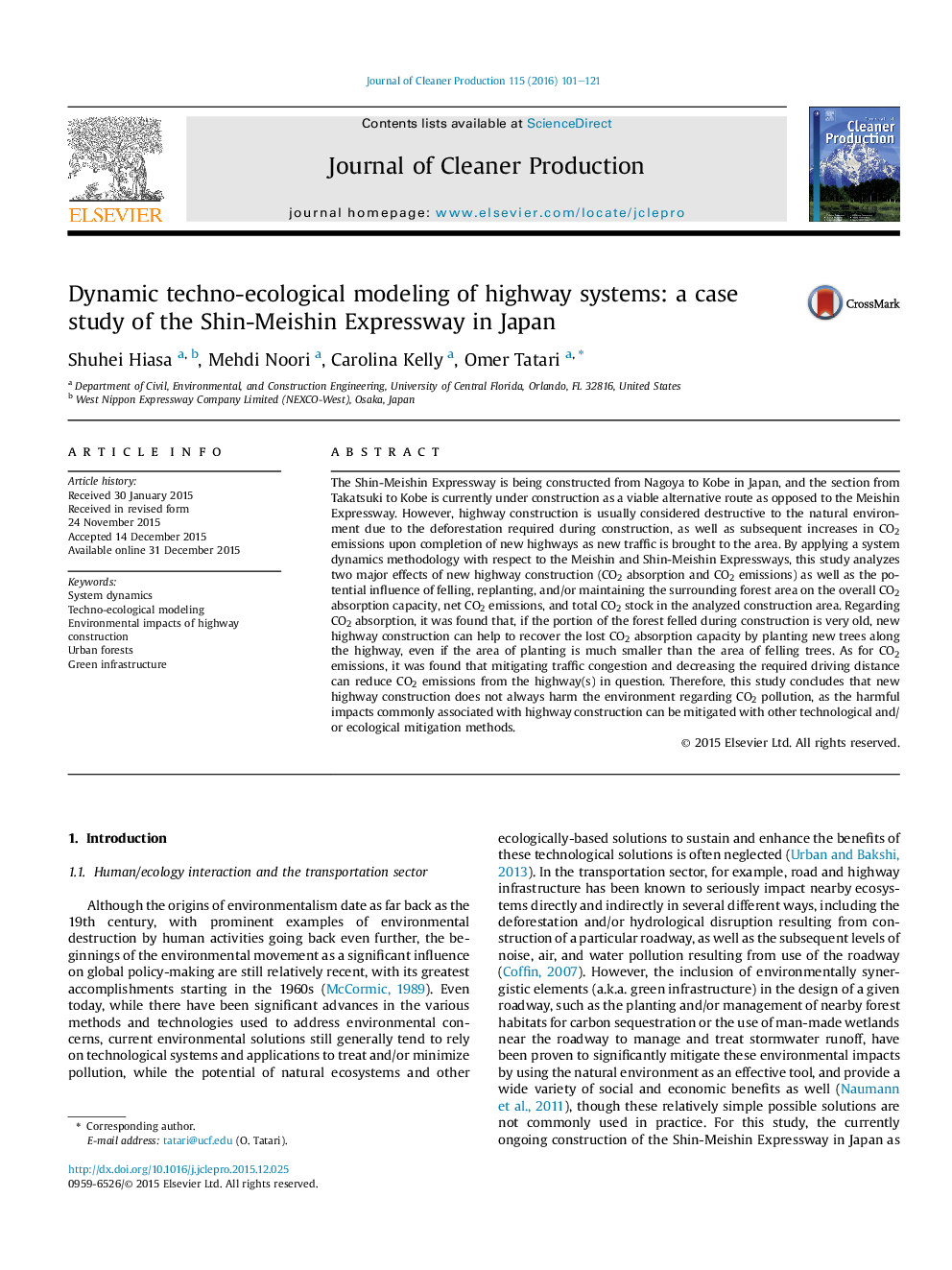| Article ID | Journal | Published Year | Pages | File Type |
|---|---|---|---|---|
| 8102624 | Journal of Cleaner Production | 2016 | 21 Pages |
Abstract
The Shin-Meishin Expressway is being constructed from Nagoya to Kobe in Japan, and the section from Takatsuki to Kobe is currently under construction as a viable alternative route as opposed to the Meishin Expressway. However, highway construction is usually considered destructive to the natural environment due to the deforestation required during construction, as well as subsequent increases in CO2 emissions upon completion of new highways as new traffic is brought to the area. By applying a system dynamics methodology with respect to the Meishin and Shin-Meishin Expressways, this study analyzes two major effects of new highway construction (CO2 absorption and CO2 emissions) as well as the potential influence of felling, replanting, and/or maintaining the surrounding forest area on the overall CO2 absorption capacity, net CO2 emissions, and total CO2 stock in the analyzed construction area. Regarding CO2 absorption, it was found that, if the portion of the forest felled during construction is very old, new highway construction can help to recover the lost CO2 absorption capacity by planting new trees along the highway, even if the area of planting is much smaller than the area of felling trees. As for CO2 emissions, it was found that mitigating traffic congestion and decreasing the required driving distance can reduce CO2 emissions from the highway(s) in question. Therefore, this study concludes that new highway construction does not always harm the environment regarding CO2 pollution, as the harmful impacts commonly associated with highway construction can be mitigated with other technological and/or ecological mitigation methods.
Related Topics
Physical Sciences and Engineering
Energy
Renewable Energy, Sustainability and the Environment
Authors
Shuhei Hiasa, Mehdi Noori, Carolina Kelly, Omer Tatari,
